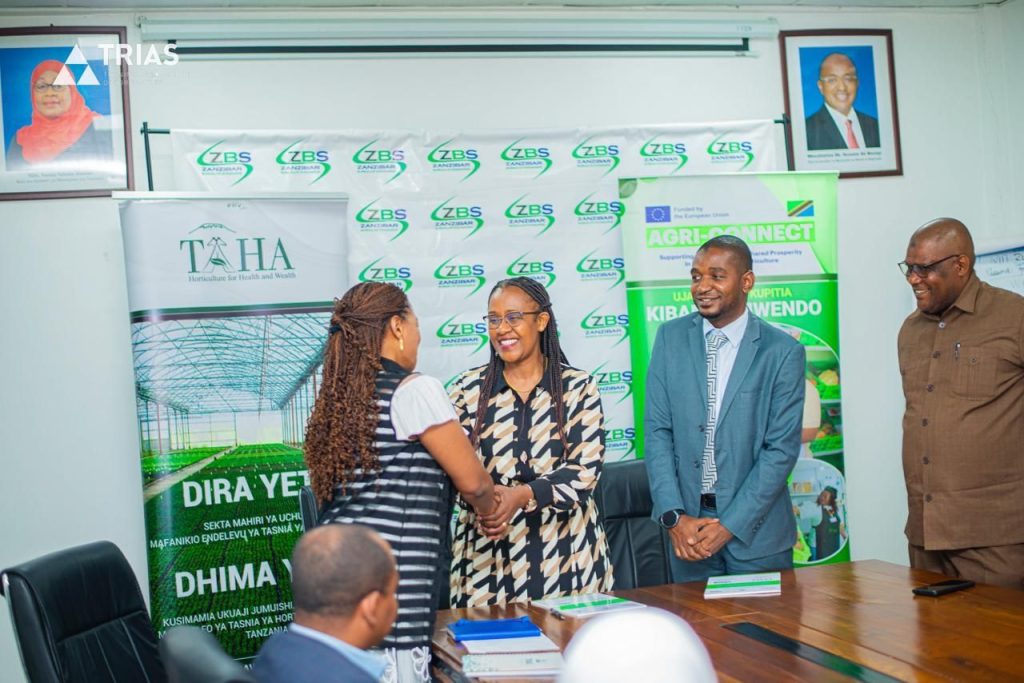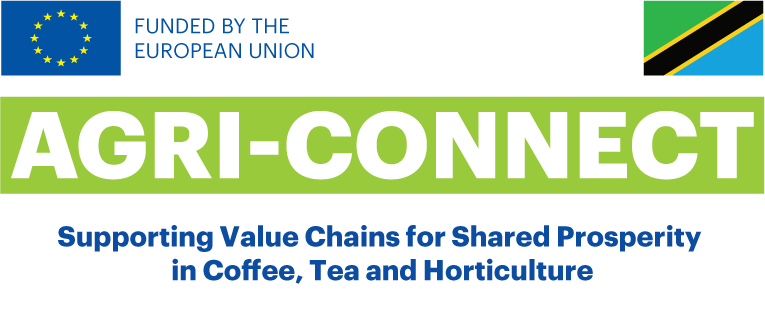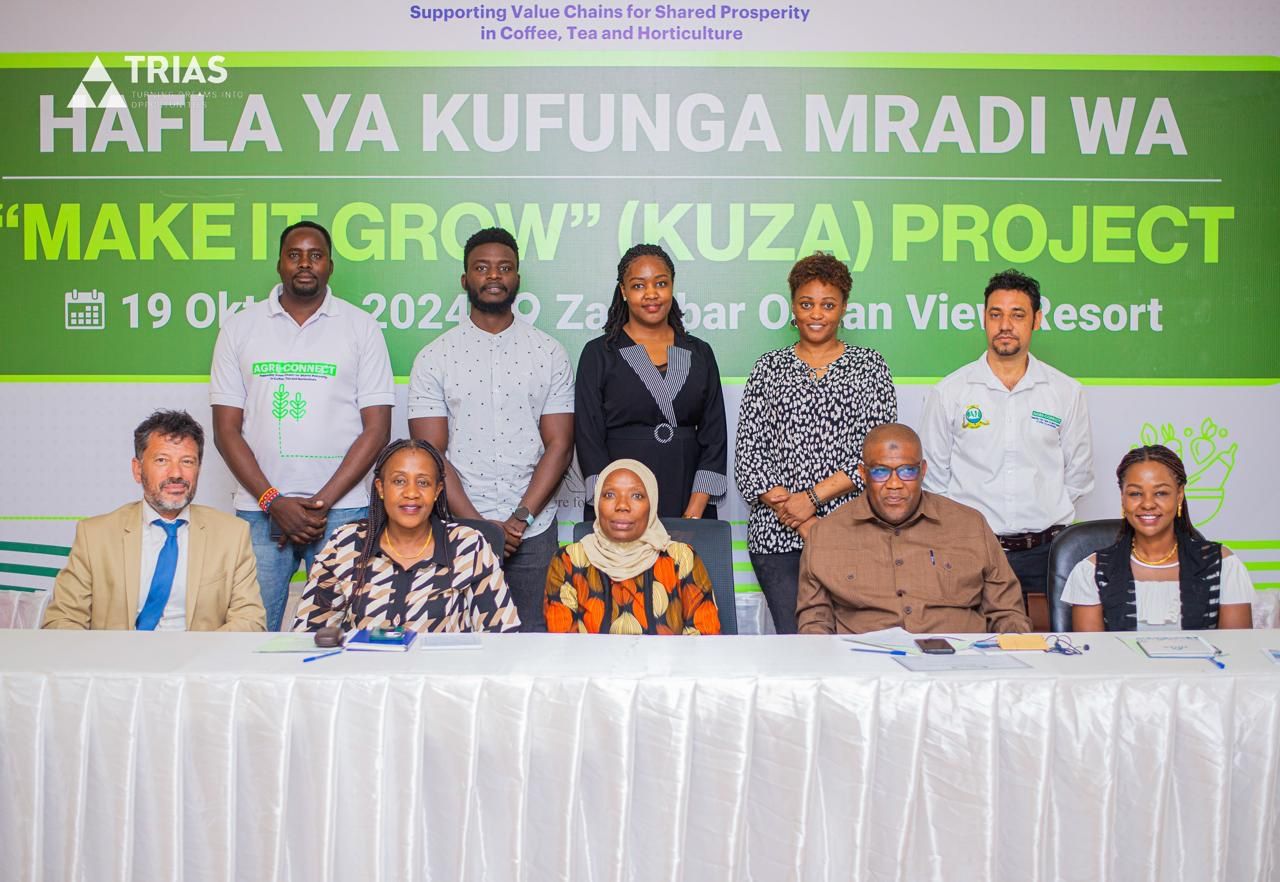
Reflecting on the Success and Legacy of the “Make It Grow” Project: Significant Impacts Worth of Celebration.
After four transformative years of dedication and collaboration, the “Make It Grow” project has officially come to an end. In a special gathering at the Ocean View Hotel in Unguja, Zanzibar, Trias had the opportunity to celebrate this remarkable journey, highlighting the achievements, challenges, and future endeavors together with project partners and key stakeholders. This initiative, which was part of the European Union’s AGRI-CONNECT Programme, has been driven by a strong partnership between Trias, the Tanzania Horticultural Association (TAHA), and the Andreas Hermes Akademie (AHA).
In attendance were distinguished guests, including the Deputy Minister of Community Development, Gender, Elderly, and Children, as well as senior officials from Zanzibar’s Ministry of Agriculture. Their presence emphasized the project’s importance and its contribution to Tanzania’s agricultural landscape, especially horticulture value chain.
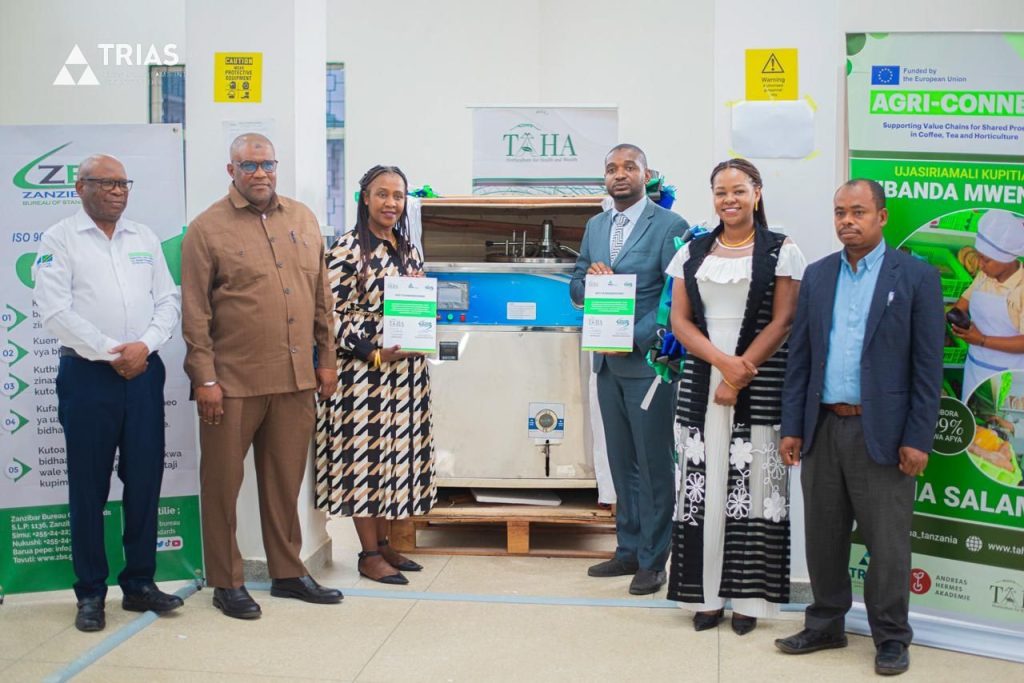
Four Years of Impact and Growth through Make It Grow Project.
Over the past four years, the “Make It Grow” project has played a crucial role in advancing sustainable agricultural practices, empowering local communities, and fostering economic growth through horticulture in Zanzibar. Funded by the European Union, this initiative set out to tackle complex issues faced by small-scale farmers, promote sustainable farming techniques, and strengthen horticulture value chain. Each initiative of the project was carefully designed to address local needs, ranging from improving productivity to enhancing market access for smallholder farmers and rural communities.
The project also focused on building knowledge, improving skills, and promoting resilience among farmers and community members in horticulture value chain. By implementing Good Agricultural Practices (GAP) and fostering climate-smart agriculture, “Make It Grow” aimed to create long-term, positive impacts that would extend beyond the project’s lifespan.
During the closure event, partners revisited some of the most noteworthy successes that “Make It Grow” achieved. These achievements were the result of dedicated efforts from Trias, TAHA, and the Andreas Hermes Akademie, and they underscored the power of collective action.
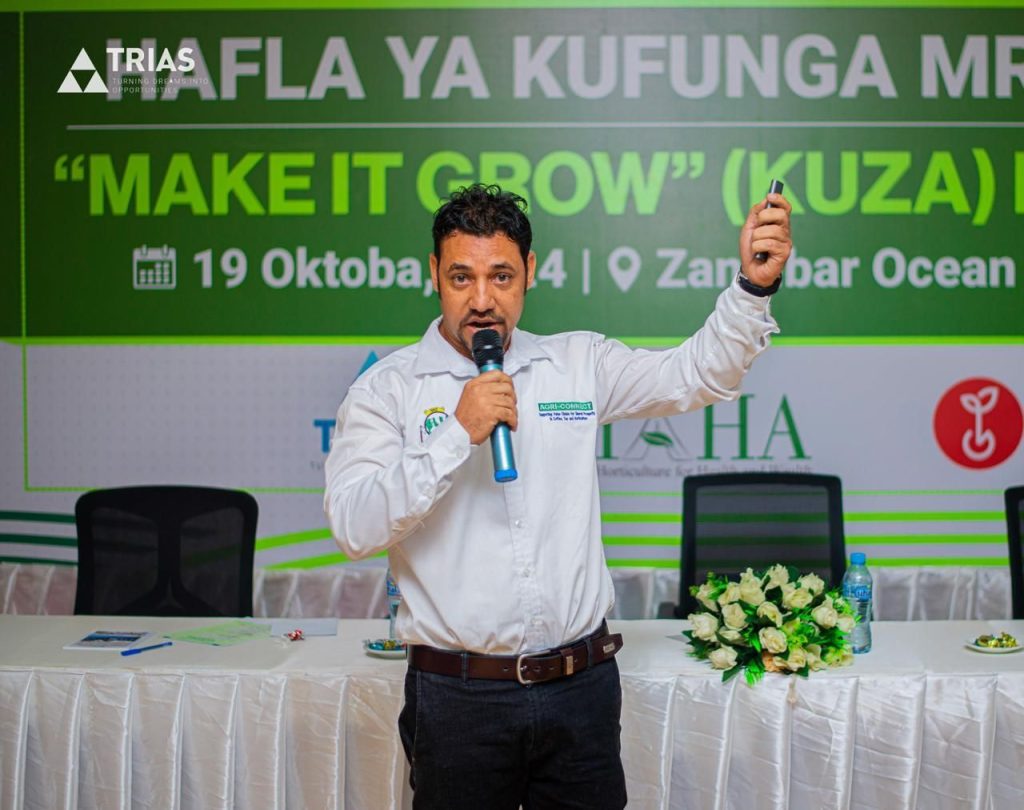
One of the project’s core interventions was to introduce and encourage Good Agricultural Practices (GAP) across horticulture farming communities in Zanzibar. Through training and hands-on workshops, the project equipped farmers with knowledge of effective farming techniques and sustainable methods, enabling them to increase yield and quality of horticultural produces. By adopting these practices, farmers were able to meet international standards, improving both their competitiveness and market access.
Recognizing the need for inclusivity, “Make It Grow” worked to empower women and youth by creating training opportunities and supporting initiatives specifically tailored to them. These efforts helped to build confidence and foster independence among marginalized groups, strengthening their roles in the agricultural sector. By supporting women and youth, the project promoted community resilience and provided pathways for economic independence.
The project also facilitated market linkages that connected farmers with buyers and reduced barriers to market entry. This included establishing robust horticulture value chain that provided farmers with reliable access to local and regional markets, enabling them to achieve better prices for their produce. Expanding these market opportunities was crucial in helping farmers increase their income and improve their livelihoods.
As part of the project’s conclusion, an exit plan was presented to ensure the sustainability of the project’s impact and continued growth for the communities involved. This exit strategy outlined ways in which the knowledge, skills, and resources developed during the project would remain available to farmers, communities, and local stakeholders. Through collaboration with local institutions, the project has ensured that farmers will continue to have access to resources, support, and training beyond the formal project period as exemplified by the presence of horticulture knowledge hub as part of project initiatives.
Additionally, the exit plan includes measures to maintain and expand the partnerships developed through the project, promoting ongoing collaboration between the EU, Trias, TAHA, and Andreas Hermes Akademie. This commitment to sustaining positive change reinforces the long-term benefits of the “Make It Grow” project.
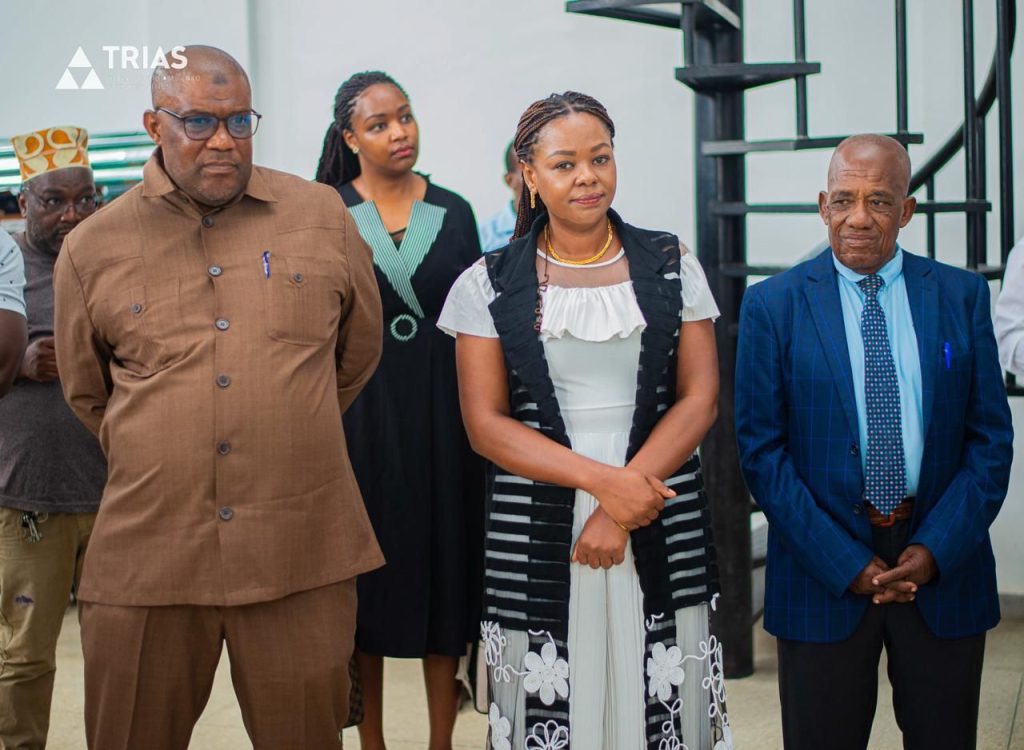
The closing event was marked by heartfelt speeches and messages of appreciation. The Deputy Minister of Community Development, Gender, Elderly, and Children praised the project’s significant contributions to local communities and its alignment with the government’s vision for sustainable development. Officials from the Ministry of Agriculture also emphasized the project’s role in transforming Zanzibar’s horticulture landscape and enhancing food security.
The partnership between Trias, TAHA, and Andreas Hermes Akademie was lauded for its effectiveness in addressing the unique challenges of the region. Their shared commitment to sustainable development and empowerment has made a lasting impact on the lives of farmers and rural communities.
The “Make It Grow” project has not only achieved its objectives but has also laid a strong foundation for the future of horticulture in Zanzibar. Its legacy lives on in the form of empowered farmers, resilient communities, and a strengthened agricultural sector that is better prepared to face future challenges. Together, Trias, TAHA, Andreas Hermes Akademie, and the European Union have created a model of collaborative success, demonstrating the power of partnership in fostering sustainable and inclusive growth and development.
